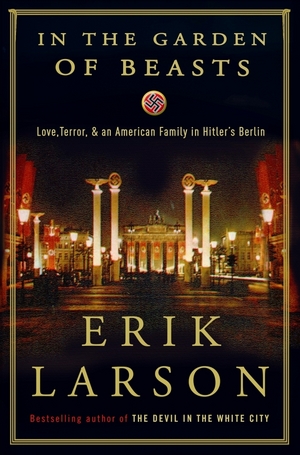In March 1933, President Franklin Roosevelt approached politician James M. Cox to offer him what should have been a cushy gig: the ambassadorship to Germany. But Cox turned down the job. Germany was unstable and violent — and German Chancellor Adolf Hitler’s paramilitary army had started to attack and jail thousands of its own citizens. The job remained open for months as candidates were summarily rejected. In early June 1933, Roosevelt’s commerce secretary suggested an alternative: William Dodd, a professor at the University of Chicago who spoke German and received his graduate degree in Germany. Roosevelt offered Dodd the job, who accepted and went to Berlin with his wife, son and daughter. Roosevelt emphasized that Dodd needed to be a model of American values in Nazi Germany. But there was a less official mandate, too. “He wanted Dodd to address [anti-Semitism] in essentially a less-than-official manner,” writer Erik Larson tells Fresh Air‘s Terry Gross, “the argument being that this was, of course, shameful [and] it was an awful thing, but it was not necessarily something that America should get involved with in an official level.” Larson chronicles Dodd’s time in Germany in a new book, In the Garden of Beasts. It’s a detailed portrait of the man who served for four years as the ambassador to Germany before resigning — after repeatedly clashing with both Nazi Party officials and the State Department. “I was interested in him because I wanted to find out what was that like, to have met these people when you didn’t know how all of this would turn out?” Larson says. “We, of course, have the power of hindsight in our arsenal, but people living in Berlin in that era didn’t. What would that have been like as this darkness fell over Germany?” MORE
Curated News, Culture And Commentary. Plus, the Usual Sex, Drugs and Rock n' Roll

 FRESH AIR
FRESH AIR